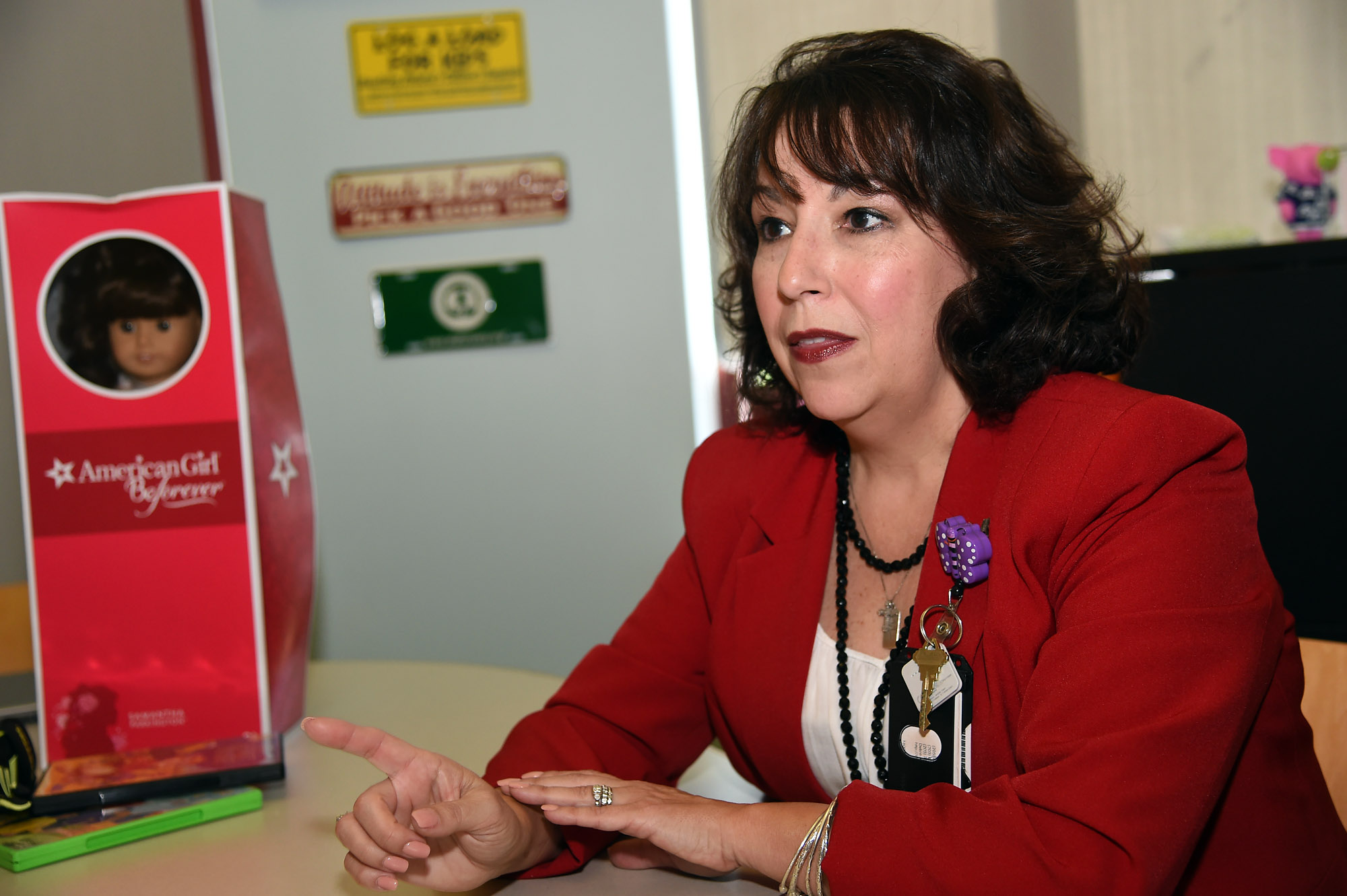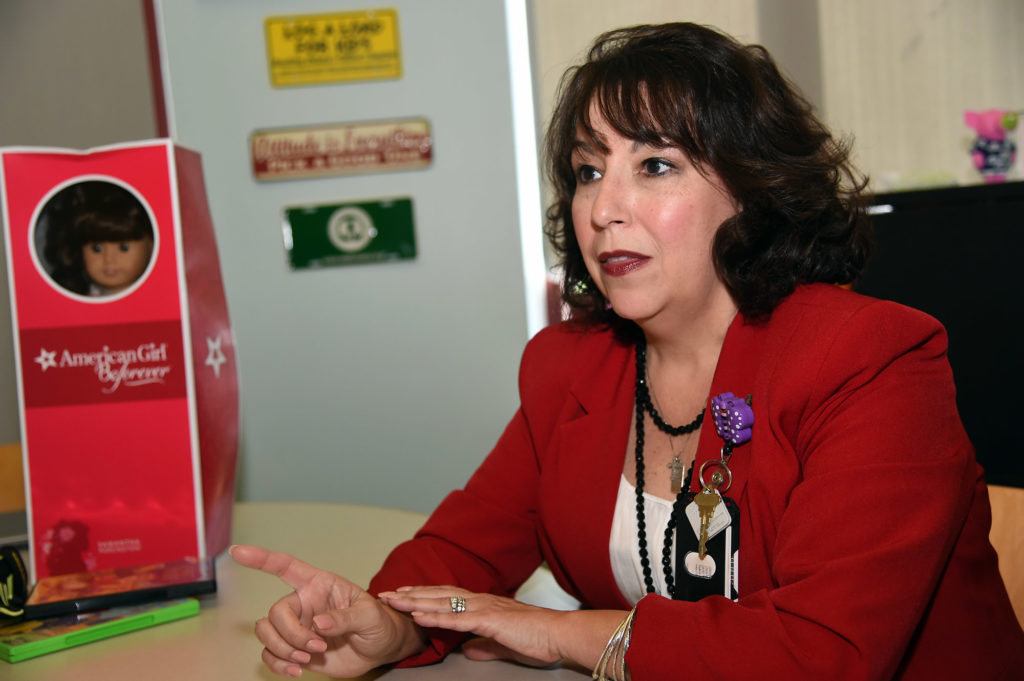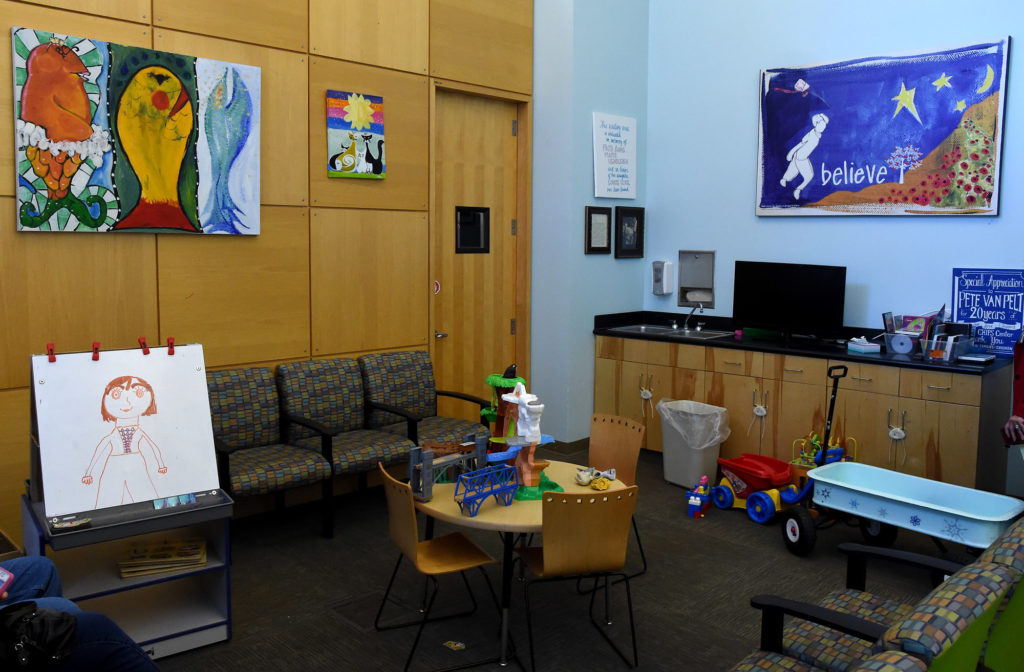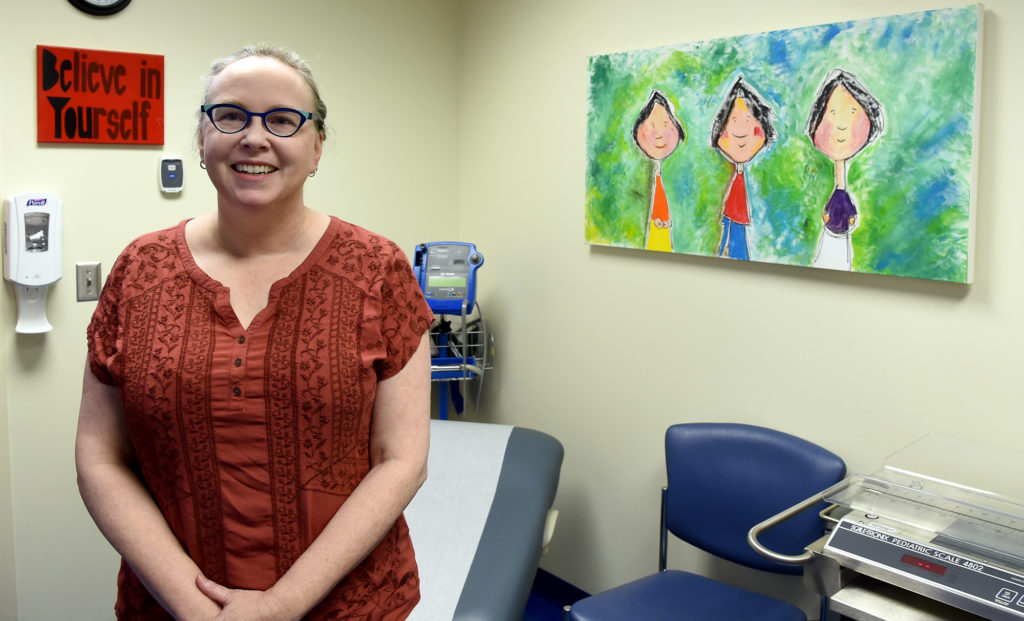
By Ariel Worthy
The Birmingham Times

Debra Schneider is the executive director of a Children’s of Alabama facility where young people who have experienced suspected abuse and their families can come for support, hope, and healing. One day, she was out shopping for supplies for the center and a young woman called her name.
“I see her standing there with her two kids,” Schneider recalled. “[She had been] abused at school, things didn’t go the way we wanted them to at court, and she was very traumatized.”
The former patient stayed in contact with Schneider… “when she was leaving for college, when she was engaged, right before she got married, when she got pregnant with her first baby, when she got pregnant with her second baby.”
Schneider asked about the children, and the young woman said, “‘My kids are homeschooled.’ My reply: ‘Of course they are!’ That’s how she made it work for her. She was assaulted in a place where kids should be safe, so her kids are homeschooled.”
Schneider is head of Children’s Hospital Intervention and Prevention Services, or the CHIPS Center. The outpatient facility at Children’s of Alabama, established in 1995, promotes health and healing for those affected by suspected child abuse and neglect.
Much Needed Work
April is National Child Abuse Prevention Month, during which groups advocate for children and help raise awareness of the epidemic of child abuse and neglect in America. The goal is to encourage social change and help children have healthier, happier, safer lives.
Schneider knows the importance of helping to heal those who have been abused, like her former patient.
“Our children are typically not just dealing with sexual abuse,” she said. “They may have to deal with bullying at school. They may have lost a family member. … There’s always a sense of loss that our children deal with. What [Counselor Jo Davis] and I do is [go to] the schools and empower them to tell, to get help.”
Schneider and Davis visit area schools throughout Jefferson, Shelby, and St. Clair counties to teach children about sexual abuse and how to speak up if they have had it happen to them. And their work is much needed.
A child is abused or neglected every 47 seconds in the U.S., and 1 in 10 children will be sexually abused before their 18th birthday, according to the Alabama Network of Child Advocacy Centers (ANCAC)—and 90 percent of the perpetrators will be people the children know.
Schneider and her team are focused on the importance of recognizing and reporting abuse of any kind.
“Most of the kids we talk to know about ‘Stranger Danger,’” she said. “They have no clue that most of the time sexual abuse is done by someone you know, and a lot of times it’s someone in the family.”
The median age of reported abuse is 9 years old, and more than 3 million children are subjects of at least one child abuse case per year, according to the ANCAC.

Specially Trained Professionals
The CHIPS Center supports children who range in age from newborn to 17; occasionally, they see adult-age patients who may have slower development. The waiting room is filled with easels, toys, and games, and there is brightly colored art on the walls.
“The way they’re greeted, the way the waiting room looks, the way we give information, no shots are given here—[patients] are just accepted where they are,” Schneider said. “If [some patients] are withdrawn or if kids are bouncing off the walls, we’re prepared for that.”
There are four main types of child abuse: physical; sexual; emotional and psychological; and neglect. And the CHIPS Center is staffed with team of nine specially trained licensed professionals who can help—one nurse, three counselors, three social workers, a CHIPS assistant, and one per-need nurse. The facility provides forensic medical evaluations, social work support services, counseling services, and prevention education services.
Everyone on the staff pays close attention to children in the facility, Schneider said. If they seem afraid, the staff tries to change the mood.
“If I walk through the halls and see a frightened child, I joke with them, telling them, ‘I’m the boss here, and everybody’s nice. If they’re not nice, I fire them,’” Schneider said. “Our receptionist, Dee, notes how they are. She’ll bring out coloring sheets or special toys, or she’ll alert the team, ‘Hey, that little one out there looks really scared.’”
Helping Parents
It’s not always children who are scared.
“Sometimes the parents have been abused, and we’re the first person they tell,” Schneider said. “A lot of times they feel like it’s only happening to them and nobody else. We have to help the parents, as well.”
Children get to choose a support person to accompany them in the exam room.
“They may pick one of us, someone who has been out there playing with them, because they know mommy’s upset and they don’t want her in the room,” Schneider said. “Our nurse will show them every step. It’s a typical checkup, checking their nose, eyes, heartbeat. Then the nurse explains to them, ‘We’re going to check your skin all over, check your private parts.’ … [We provide the support they need.] We blow bubbles in the exam room. We give them [toys]. We ask them questions: ‘Now, who are those Disney princesses?’ We try to stay in tune with current movies and TV shows. [When talking to] the older kids, we let them know what’s going to happen and encourage them to relax.”
Some cases are difficult because the child might not understand what is going on, but the trained staff does its best to educate patients.
“We had one little girl who hadn’t even started her period yet, but with the little she knew she thought she was pregnant,” Schneider said. “Through the exam and ensuring her that she was not pregnant, she was able to relax, and we were able to start the healing process.”

Court Support
The CHIPS Center offers support in several ways, including showing up in court for legal matters.
“[In some court cases, we serve as] expert witnesses testifying,” Schneider said. “Other times, there might be a family we’re working with in therapy and they’re going to court and the child might be testifying, so the counselor will go to court not to be a witness but to offer support.”
The center also has a medical examiner, Melissa Peters, MD, who said her job in court is not to win or lose a case but “to explain to the jury or judge why so many children with sexual abuse have normal exams.”
“That surprises a lot of people,” Peters said. “They think there should be some sort of problem. Some doctors are afraid to go to court. We’re just there to answer questions. I’ve had a good day if I feel I have explained the roles.”
Real life is not what people see on television, she said: “It’s not like ‘Law and Order SVU,’ where everything happens in an hour. It’s going to be a long process. Shows like that are a reason people think there has to be a medical finding.”
Schneider added, “Physical abuse is sometimes easier to see, but not necessarily; there could be internal injuries. Because the disclosure can be delayed with sexual abuse, if our medical provider does not see evidence of abuse, that doesn’t mean the abuse doesn’t happen. So, they may have to go to medical court to explain why there are no findings.”
Open-Door Policy
Everyone in the CHIPS Center realizes that the nature of the job can affect members of the staff personally, so there is an open-door policy.
“[Every room] here [is open], [a place] where people can go into and cry, vent about a particular case, and not be judged,” Schneider said. “It may be a case in which someone has the same name as my child, or the same birthday, or is the same age.”
Peters, who has worked at the center for 13 years, says it’s important for the staff to recognize their personal needs as well as those who visit.
“After years of doing what I do, I recognize when a case is going to bug me,” she said. “I recognize when I’m going to need to get out in the yard and plant some things. I recognize when I need to talk. That recognition is important and being sensitive to it yourself.”
For additional information please contact 205-638-2751 to discuss CHIPS services with a CHIPS Team member.




